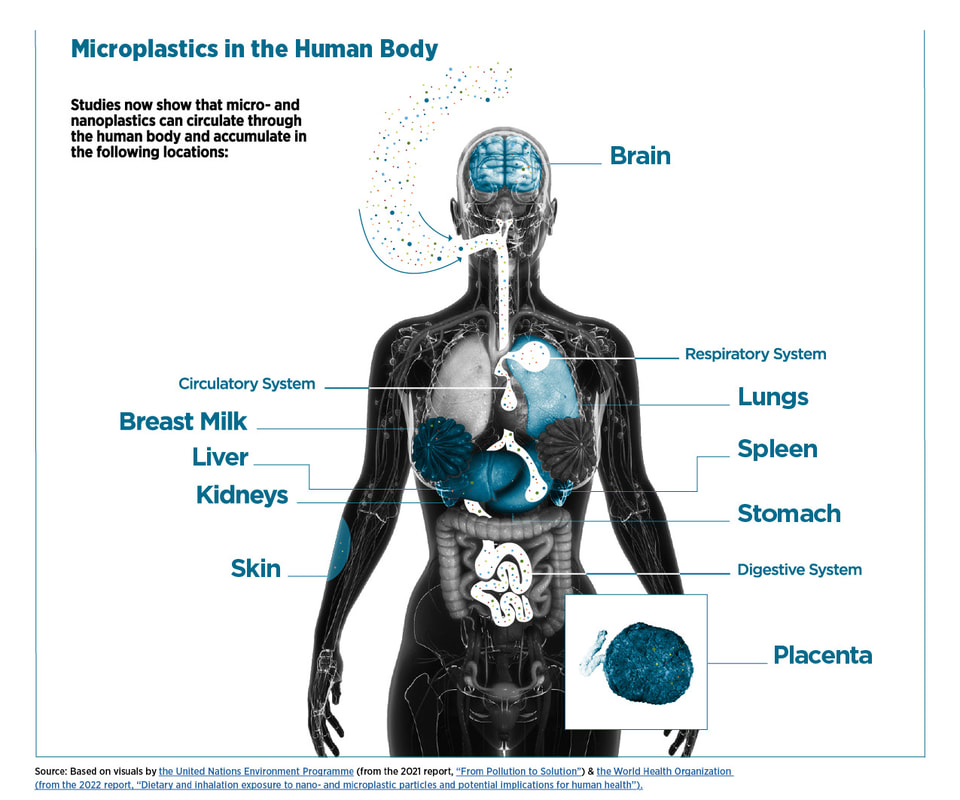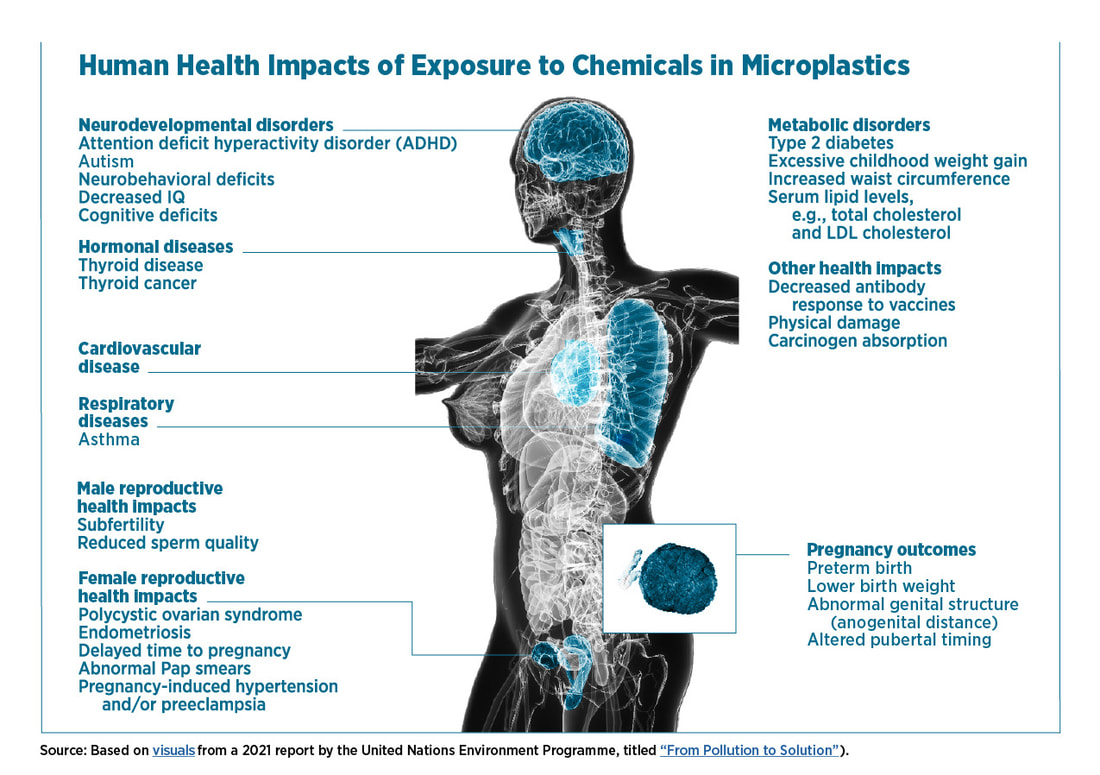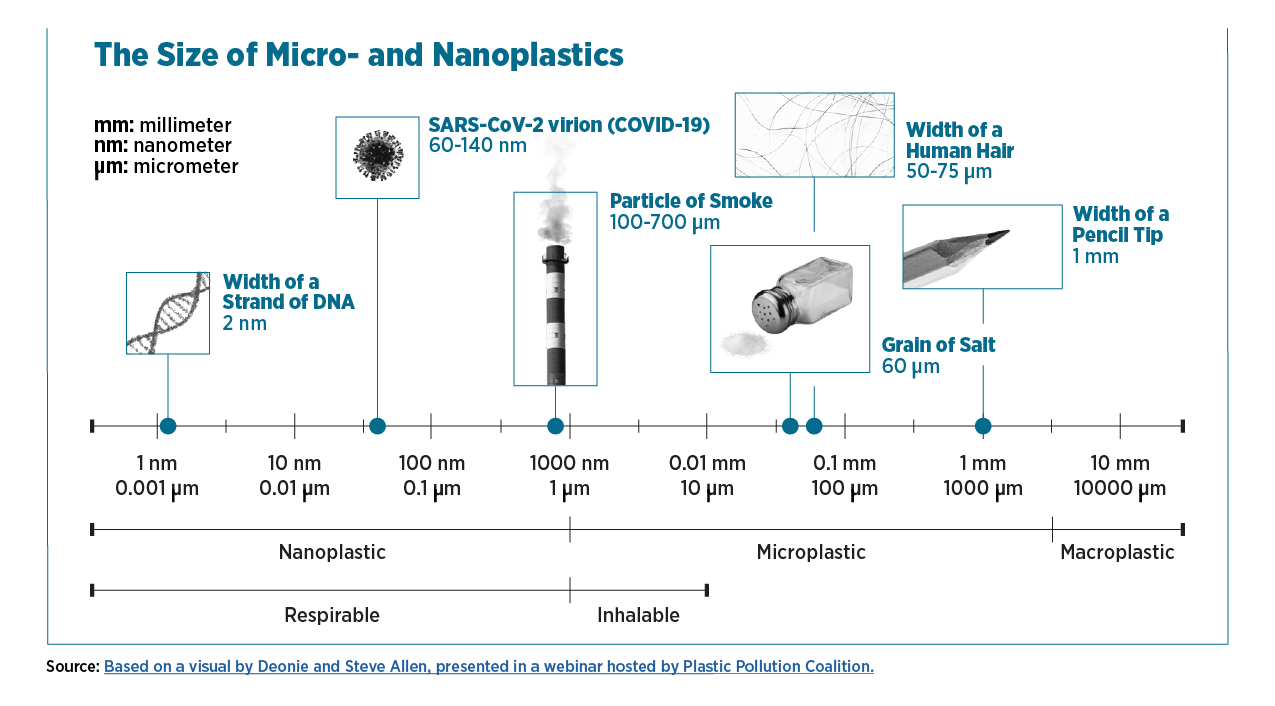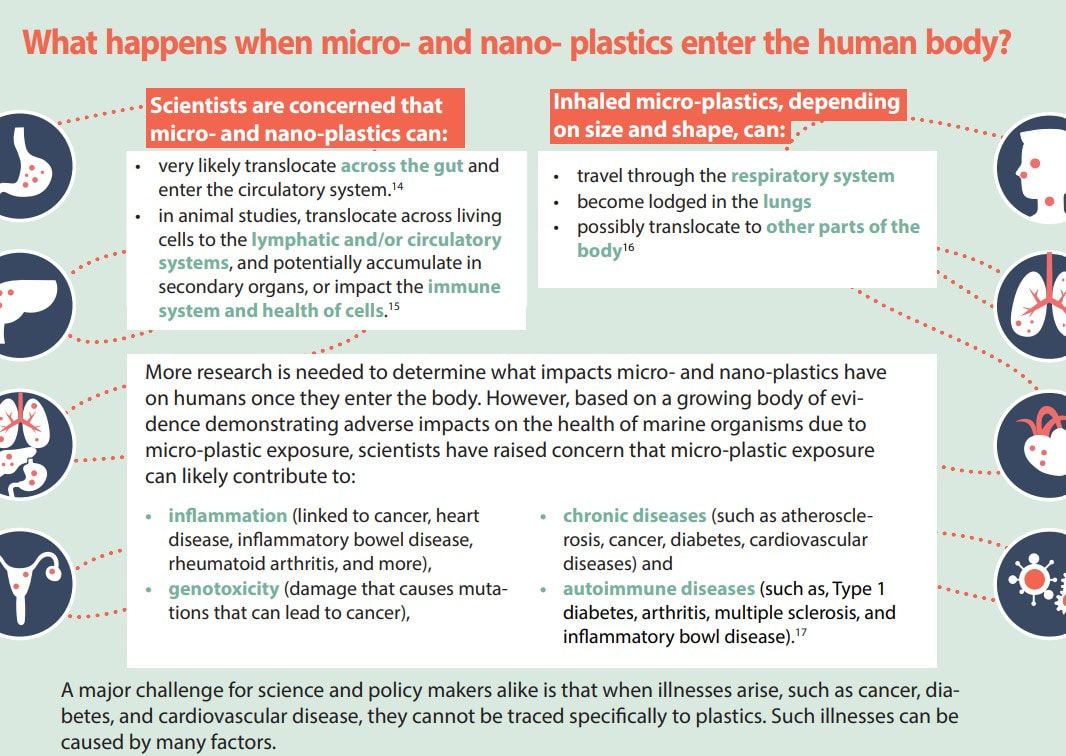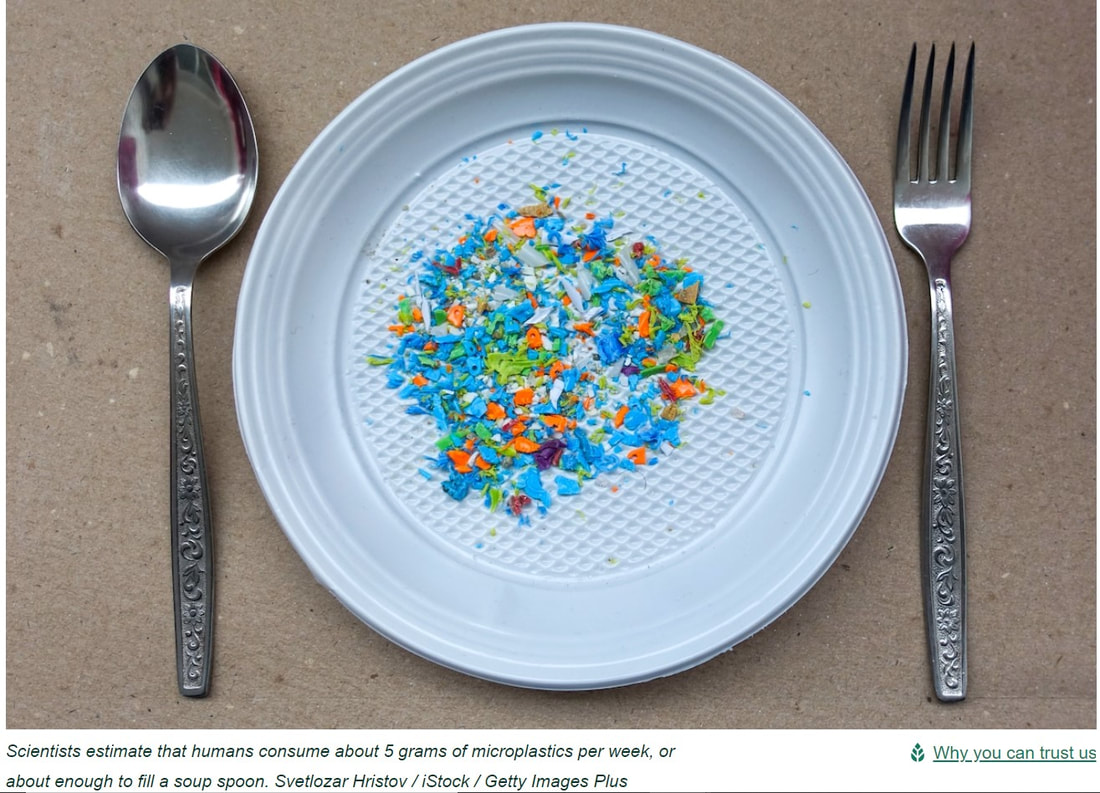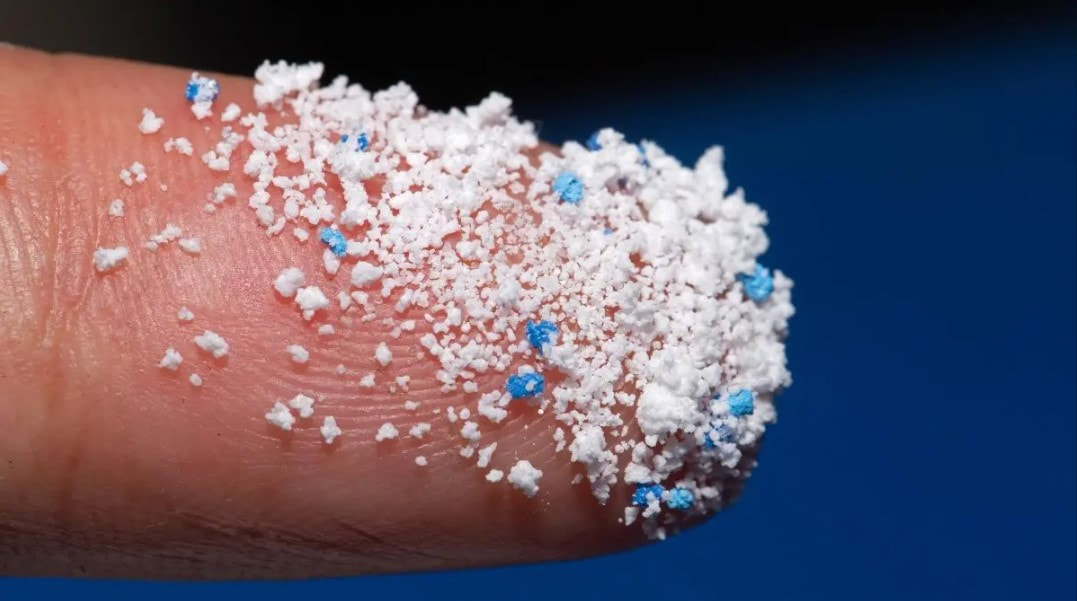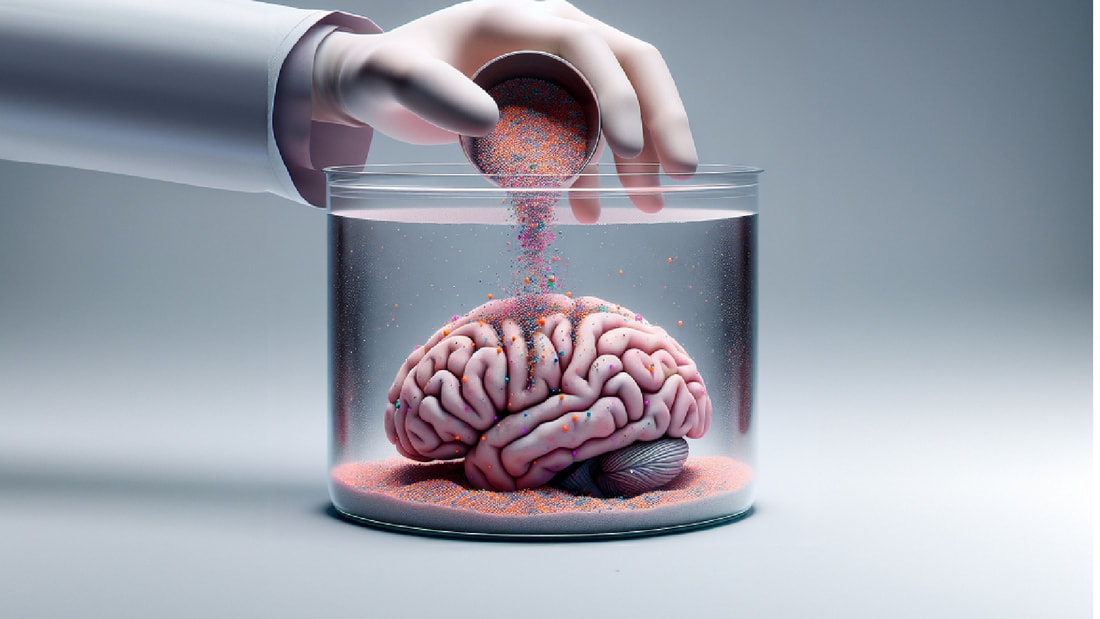22.06.2024
Ingested Microplastics Can Move From the Gut to the Brain and Other Organs
Studies have recently detected microplastics in human lungs and blood, and previous research shows humans ingest and inhale many microplastics even at home. In 2020, scientists uncovered microplastics in human organs for the first time. Now, researchers are making sense of how microplastics that are ingested can make their way from the gut to other organs. As reported by Reuters, scientists estimate that humans consume about 5 grams of microplastics per week, or about enough to fill a soup spoon. Estimates suggest humans consume about 21 grams of microplastics per month and 250 grams per year. Over a lifetime of about 79 years, humans may consume 20 kilograms of microplastics. It's happening every day. From our water, our food and even the air we breathe, tiny plastic particles are finding their way into many parts of our body. Microplastics had migrated out of the gut into the tissues of the liver, kidney and even the brain. The study also showed the microplastics changed metabolic pathways in the affected tissues. Microplastics are also impacting macrophages -- the immune cells that work to protect the body from foreign particles. Credit: SCIENCE NATURE PAGE
Poverty deprives people of adequate education, health care and of life's most basic necessities- safe living conditions (including clean air and clean drinking water) and an adequate food supply. The developed (industrialized) countries today account for roughly 20 percent of the world's population but control about 80 percent of the world's wealth.
Poverty and pollution seem to operate in a vicious cycle that, so far, has been hard to break. Even in the developed nations, the gap between the rich and the poor is evident in their respective social and environmental conditions.
Poverty and pollution seem to operate in a vicious cycle that, so far, has been hard to break. Even in the developed nations, the gap between the rich and the poor is evident in their respective social and environmental conditions.
